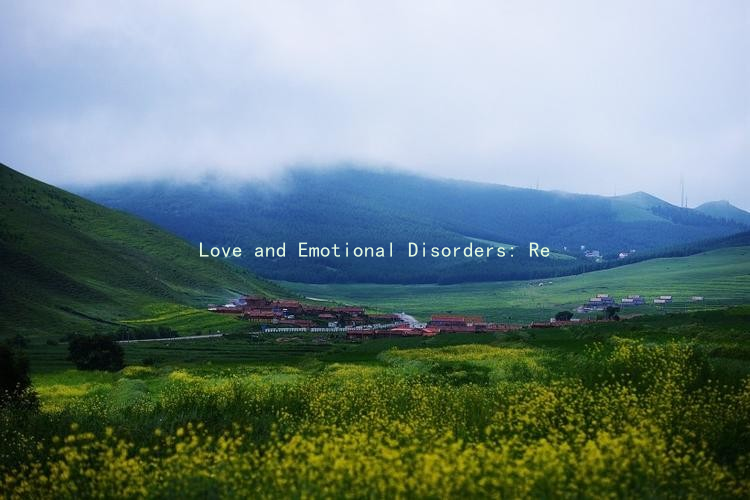Love and Emotional Disorders: Recognizing the Signs and Finding Solutions
Love and Emotional Disorders: Recognizing the Signs and Finding Solutions
In the intricate dance of romance, love is often celebrated as a beautiful experience that brings joy and fulfillment. However, for some individuals, emotional disorders can complicate this journey, leading to challenges in forming, maintaining, and enjoying healthy relationships. Recognizing the signs of emotional disorders and understanding how they can affect love is crucial for both partners in a relationship. Moreover, finding solutions to navigate these hurdles can pave the way for a stronger and more resilient bond.
Emotional disorders, such as anxiety, depression, and borderline personality disorder, can manifest in various ways within a romantic relationship. For instance, a partner suffering from anxiety might experience overwhelming fears of abandonment or rejection, causing them to withdraw or react defensively. On the other hand, someone dealing with depression might struggle with low energy or lack of interest, making it difficult to engage in meaningful interactions, creating a sense of distance.
Recognizing these signs early on is vital. It requires a keen awareness of changes in behavior and communication patterns. A partner may exhibit increased irritability, mood swings, or even emotional outbursts that seem out of character. If you notice these indicators, it’s essential to approach the situation with empathy and understanding rather than judgment. Open conversations about feelings and concerns can offer a supportive environment where both partners feel safe to express their emotions.
Once the signs are recognized, the next step is to find effective solutions. Encouraging your partner to seek professional help can be a significant step in the right direction. Therapy can provide invaluable tools for managing emotional disorders, such as cognitive-behavioral strategies, communication skills, and coping mechanisms. It’s important to foster an environment where seeking help is viewed positively rather than as a sign of weakness.

Effective communication is another cornerstone of any relationship, especially when navigating emotional difficulties. Using “I” statements can help articulate feelings without sounding accusatory. For example, rather than saying, “You never want to spend time with me,” try expressing, “I feel lonely when we don’t spend time together.” This approach not only conveys your feelings but also opens the door for dialogue, allowing your partner to share their perspective.
Additionally, practicing patience and empathy can make a world of difference. Understand that emotional disorders can affect a person’s mood and behavior unpredictably. It’s essential to remember that your partners reactions might stem from their internal struggles rather than a reflection of their feelings for you. Providing reassurance and support can help foster a sense of security in the relationship.
Engaging in activities together that promote positive emotions, such as regular exercise, shared hobbies, or mindfulness practices, can also strengthen the bond between partners. These activities offer a chance to create joyful memories while also serving as healthy distractions from the challenges that emotional disorders may present.
Lastly, self-care is as important as caring for your partner. It can be emotionally taxing to support someone with an emotional disorder, and it’s crucial to ensure you are also taking time to recharge your own emotional batteries. Seeking your own support network, whether it be friends, family, or therapists, can provide you with the resilience needed to navigate the complexities of love and emotional disorders.
In conclusion, while emotional disorders can pose challenges in romantic relationships, recognizing the signs and addressing them with empathy and understanding can lead to personal growth for both individuals involved. Through open communication, professional help, and shared positive experiences, couples can create a strong foundation that not only survives but thrives amidst the complexities of love.





